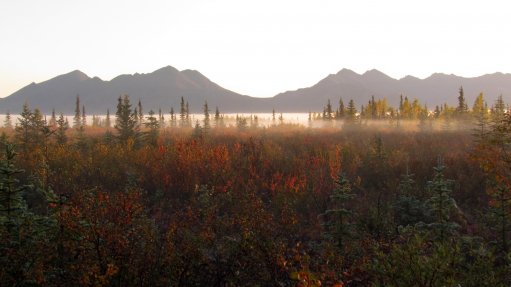Africa's richest man may quit Ethiopia over mining dispute
LAGOS – Dangote Cement, controlled by Africa’s richest man, Aliko Dangote, said it may shut its operations in Ethiopia if authorities in the central state of Oromia don’t reverse an order to cement makers to hand over control of some parts of their businesses to local young people.
Oromia state’s East Shewa Zone administration wants the Nigerian company to outsource its pumice, sand and clay mines to youth groups or be responsible for “any problems” that may arise, according to a letter from the authority to Dangote that was seen by Bloomberg and verified with a representative of East Shewa’s administration. The regional government sees the transfer of jobs in pumice production as a way to ease youth unemployment and quell unrest, according to the document.
Any mismanagement of mining infrastructure including buildings and excavators could “lead to total breakdown of our business,” Dangote executive director Edwin Devakumar said in an interview at the company’s headquarters in Lagos, Nigeria’s commercial hub, last week.
The cement maker will write to the federal government this week to ask it to intervene and will consider shutting the plant in Mugher, about 90 km (56 miles) north of Addis Ababa, as a “last option” if this fails, he said. The company listed Ethiopia as one of its three “key” markets, along with Nigeria and South Africa, in a presentation in May.
There’s “no intention to displace any investment,” so long as Dangote is “working by the laws and regulations in our region and country,” Tekele Uma, head of Oromia’s transport authority, said by phone. “If anyone’s complaining about Oromia regional state, we’re ready to talk with them. Any investment can come. Any investment can go.”
Motuma Mekassa, Ethiopia’s minister of mining, petroleum and natural gas, said by phone he wasn’t aware of an attempt by Dangote to reach his office. An official at the federal ministry said Dangote should make an approach through “appropriate channels,” as opposed to through the media, asking for his name to be withheld, citing the sensitivity of the issue.
The Ethiopian government is searching for ways to reduce youth unemployment after violent protests by Oromo communities over alleged land dispossession, political marginalization and repression led the government to declare a state of emergency last year. Dangote Cement was among several businesses attacked during the unrest. The protests triggered a 20% slump in foreign investment to $1.2-billion in the six months through December compared with the same period a year earlier, according to the government.
The order to outsource mining is “a violation of our rights because the government has given us a mining licence,’’ said Devakumar, who was Dangote Cement’s chief executive officer until 2015. “If I don’t have limestone and additives my cement plant is useless.”
Although the disputes haven’t forced Nigeria’s biggest listed company to halt production, it will miss targets if the impasse isn’t broken, the executive director said. Disruption in pumice flows will reduce output and trigger job cuts, Devakumar said. Dangote employs about 1 500 workers directly in the country, while an estimated 15 000 people earn a living indirectly through the firm’s cement and mining facilities, he said.
The disagreement is also hampering Dangote’s Ethiopian expansion plans. The company has stopped an advance payment on a contract to double production capacity of the 2.5-million metric-ton per year plant after signing an agreement, Devakumar said.
The company has spent more than $700-million in the country and is “discouraged from investing more,” he said.
Ethiopia’s government said in February it’s only likely to attract $3.2-billion of foreign direct investment this year, compared with a target of $3.5-billion.
Dangote Cement, which has a market value of $11.1-billion, has expanded rapidly across Africa since 2014 and now operates in nine countries aside from Nigeria. The shares were little changed in Lagos on Thursday.
Comments
Press Office
Announcements
What's On
Subscribe to improve your user experience...
Option 1 (equivalent of R125 a month):
Receive a weekly copy of Creamer Media's Engineering News & Mining Weekly magazine
(print copy for those in South Africa and e-magazine for those outside of South Africa)
Receive daily email newsletters
Access to full search results
Access archive of magazine back copies
Access to Projects in Progress
Access to ONE Research Report of your choice in PDF format
Option 2 (equivalent of R375 a month):
All benefits from Option 1
PLUS
Access to Creamer Media's Research Channel Africa for ALL Research Reports, in PDF format, on various industrial and mining sectors
including Electricity; Water; Energy Transition; Hydrogen; Roads, Rail and Ports; Coal; Gold; Platinum; Battery Metals; etc.
Already a subscriber?
Forgotten your password?
Receive weekly copy of Creamer Media's Engineering News & Mining Weekly magazine (print copy for those in South Africa and e-magazine for those outside of South Africa)
➕
Recieve daily email newsletters
➕
Access to full search results
➕
Access archive of magazine back copies
➕
Access to Projects in Progress
➕
Access to ONE Research Report of your choice in PDF format
RESEARCH CHANNEL AFRICA
R4500 (equivalent of R375 a month)
SUBSCRIBEAll benefits from Option 1
➕
Access to Creamer Media's Research Channel Africa for ALL Research Reports on various industrial and mining sectors, in PDF format, including on:
Electricity
➕
Water
➕
Energy Transition
➕
Hydrogen
➕
Roads, Rail and Ports
➕
Coal
➕
Gold
➕
Platinum
➕
Battery Metals
➕
etc.
Receive all benefits from Option 1 or Option 2 delivered to numerous people at your company
➕
Multiple User names and Passwords for simultaneous log-ins
➕
Intranet integration access to all in your organisation


















